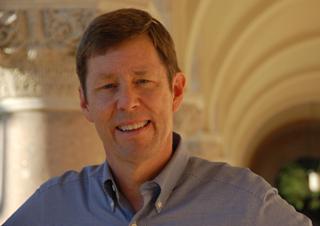Oct 23 2015
The American Physical Society has awarded Rice University physicist Randy Hulet the prestigious 2016 Davisson-Germer Prize in Atomic Physics.
 This is Randy Hulet. Credit: Rice University
This is Randy Hulet. Credit: Rice University
The prize, which includes a $5,000 award, is given to recognize and encourage outstanding work in atomic physics or surface physics. Hulet is being honored for his "pioneering investigations of quantum degenerate gases and how they are affected by atomic interactions."
Hulet, Rice's Fayez Sarofim Professor of Physics and Astronomy, is a leading figure in the study of ultracold atomic gases. His research group uses lasers to both trap and cool clouds of lithium gas to less than a millionth of a degree above absolute zero. At such temperatures, the behavior of matter is dictated by the laws of quantum mechanics. In 1995, Hulet's group was among the first to make a Bose-Einstein condensate, a cloud of thousands of atoms that march in lockstep as if they are a single entity, or "matter wave."
Hulet's group has continually refined its techniques to produce a steady stream of groundbreaking results. For example, in late 2014 the researchers showed that if they collided two Bose-Einstein condensates prepared in a special state known as a soliton, the waves seemed to jump through each other without actually interacting. In other situations, the researchers showed that the two solitons annihilated one another. In a study earlier this year, the team used ultracold atoms as stand-ins for electrons to simulate the magnetic behavior observed in high-temperature superconductors. They are pursuing methods to cool atoms to even lower temperatures -- billionths of a degree above absolute zero -- to unlock the mysteries of these technologically important materials.
Hulet's prior awards and honors include the American Physical Society's I.I. Rabi Prize and the National Science Foundation's Presidential Young Investigators Award. He is also a fellow of the American Physical Society, a fellow of the American Association for the Advancement of Science and a member of the American Academy of Arts and Sciences.
The official presentation of the Davisson-Germer Prize will be in May at the 47th annual meeting of the American Physical Society's Division of Atomic, Molecular and Optical Physics in Providence, R.I.
The American Physical Society is a nonprofit organization that advances and shares knowledge of physics through its research journals, scientific meetings, education, outreach, advocacy and international activities. More than 51,000 physicists in academia, national laboratories and industry in the United States and around the world are members of the organization.